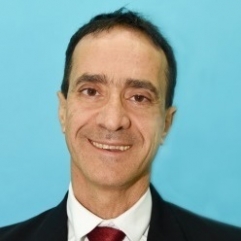
Facing Recurrent Pregnancy Loss
February 14, 2017
The Jerusalem Post — A newly conceived embryo is a fragile thing, and about one percent of couples trying to have children are affected by recurrent pregnancy loss (RPL). Defined as two consecutive pregnancy losses in the United States and three in Israel, RPL is an all too common issue.
Prof. Asher Bashiri, M.D., of BGU’s Division of Obstetrics and Gynecology in the Faculty of Health Sciences, however, is shedding light on this misunderstood medical problem. One of only a handful of Israeli experts in RPL, Prof. Bashiri recognized the need for greater visibility of the issue.
“RPL is discussed sometimes at fertility conferences, but they are busy with sperm donations, in-vitro fertilization, surrogacy and other subjects not related to recurrent miscarriages,” he says.
“These events usually don’t invest a lot of time discussing RPL.”
In response, Prof. Bashiri organized and became president of the World Congress on Recurrent Pregnancy Loss in 2016 in Cannes, France. The Congress recently concluded its second conference in two years. Over 400 researchers from around the world attended the two gatherings to raise RPL awareness and compare research.
“The Congress is an important platform to share the latest research and development on the sensitive subject of miscarriage,” says Prof. Bashiri.
Born in Beer-Sheva, Prof. Bashiri studied medicine at BGU and specialized in obstetrics at Soroka University Medical Center. Following an ultrasound fellowship at New York University, he returned to Beer-Sheva and became director of the Maternity Department and Recurrent Pregnancy Loss Clinic at Soroka. He also serves as the director of the obstetrics and gynecology clerkship for advanced medical students at BGU and advises more than 25 research students.
Over his years of study, Prof. Bashiri has researched various triggers of recurrent fetal loss. These can include malformation of the uterus, hormonal imbalances and autoimmune conditions in the mother; lifestyle factors such as smoking, drinking alcohol and exposure to certain drugs; and consanguinity. The latter is especially important to the Negev Bedouin community, where marriage between cousins is accepted.
“We at Soroka organized a forum with imams to answer their questions about RPL, but the tradition of marrying close relatives is not likely to change in the near future, despite the medical problems it causes,” says Prof. Bashiri.
At his clinic, Prof. Bashiri offers physical and genetic counseling to identify and circumvent potential hazards to an embryo.
“Today, unfortunately, some doctors who deal with RSL don’t look deeply into a couple’s genetics and look only for pathology,” the researcher says. “If we find a genetic problem, we can provide an answer.”
Prof. Bashiri plans to write new Israeli guidelines for the diagnosis and treatment of RPL, and hopes to one day host his World Congress on Recurrent Pregnancy Loss in Jerusalem. Next year’s conference will take place in Venice, Italy.




